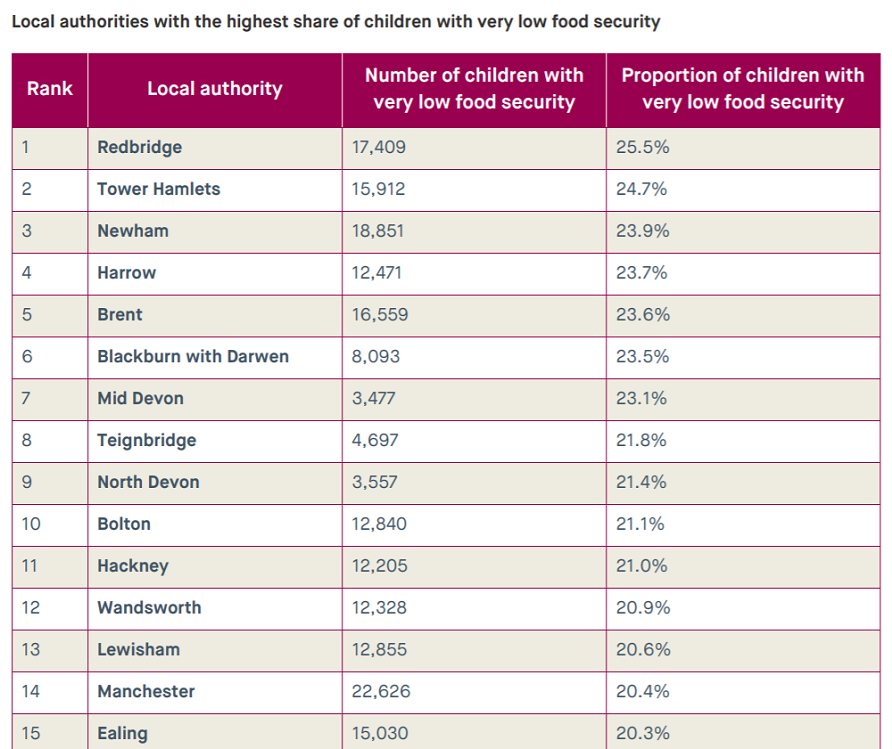Coronavirus: 16% of children missed meals during 2020
Around 16% of parents have said their children missed meals due to hardship during the COVID-19 pandemic, a think-tank report revealed.
The Social Market Foundation’s (SMF) findings suggest that more than 1.9 million children have gone short of food amid this year’s economic turmoil.
One in four children — 3 million in total — faced some form of food deprivation in the six months following the first nationwide lockdown that started in March.
Reported usage of food banks rose from 8% before the crisis to 11% since, but reported take-up of free school meals went down slightly from 22% to 20%.
Only 30% of children receiving free school meals are classified as having very low food security, suggesting that school meals are effective at reducing hunger.
The SMF also modelled how many children in each local authority area in the UK have very low food security.
Five of the ten authorities with the highest share of children at risk of hunger are in London; the others are in Devon and Lancashire, something the SMF said showed the challenge of food security is spread across the country.

The SMF analysis of food insecurity is based on the US government’s Children’s Food Security Scale. On that measure, 14% of British children — 1.7 million in total — have faced such persistent deprivation amid this year’s economic downturn that they could be classed as suffering “very low food security,” the report found.
The findings suggest that child poverty and hunger are deeper and more widespread than previously thought, the report added.
The think-tank surveyed a nationally representative sample of 1,000 parents, using a questionnaire based on the one the UK government is employing to develop the first official statistics on child hunger.
The report was sponsored by food delivery firm Deliveroo, a member of the Child Food Poverty Taskforce set up by footballer Marcus Rashford as part of his campaign to tackle child hunger in the UK.
WATCH: Should I pay off debt or save money during the coronavirus pandemic?
READ MORE: Sunak and Johnson 'agree to extend' universal credit benefit
There are currently no official statistics on the number of children living in food insecurity the report said. The government last year made changes to the Family Resources Survey, an official measure of household living standards, to cover food insecurity, but data covering the period of the pandemic will not be published until 2022.
The SMF’s recommendations to ministers and policymakers on food insecurity include mobilising a national network of food redistribution and devolving responsibility for this to local authorities.
It also recommends bolstering universal credit and the wider benefits system: “The fundamental driver of food insecurity is a lack of money. The government needs to find ways to get cash into the hands of those facing greatest hardship — perhaps by retaining the temporary £20 ($27) increase in Universal Credit, increasing its child element or widening coverage,” it said.
WATCH: What is universal basic income?

 Yahoo Finance
Yahoo Finance 